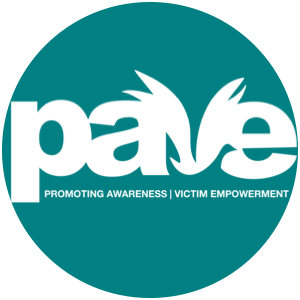Sexual Assault Awareness Month: College Campus Sexual Violence
TW: Sexual Assault/ Violence
With the prevalence of sexual assault on college campuses increasing in recent years, it is that much more important to raise awareness surrounding this issue. Although sexual assault can happen to anyone of any age and gender, college-aged women 18-24 years old are are 3x more likely than all other women to be sexually assaulted. Compared to all other crimes, sexual assault is also the most prevalent crime to take place on college campuses.
One of the factors for sexual assault being so common on college campuses is the accessibility of drugs and alcohol. For many college students, this is their first time being away from home and for many students it is their first time drinking. Most people at this age do not know their limits when it comes to drinking and oftentimes end up drinking too much, causing them to be unaware of what is going on around them. Perpetrators will then take advantage of how the drugs or alcohol incapacitates someone and prevents them from being able to consent to sexual activity. From August to November, college students are at a higher risk of being sexually assaulted and that specific time of the year is o called the Red Zone. The Red Zone most often occurs because of the prevalence of college parties with the return of school as well as recruitment for Greek life. No matter how much someone has had to drink, it is never the victim’s fault for being sexually assaulted. However, it is important to understand the relationship between substance use and the facilitation of sexual assault.
Many young women have reported sexually coercive experiences within the first four semesters at college. Younger students coming to college for the first time may not have had the correct education and knowledge about consent and sexual violence prior to moving away. This lack of knowledge can make it hard for many students to understand what happened to them was in fact sexual assault and that it wasn’t their fault no matter what the situation. Along with not having the knowledge of what defines sexual assault, most college students do not know how to report an assault either. Only 1 in 5 college-aged women report their assault to police, but according to statistics from RAINN, it is more likely that 4 out of 5 women aged 18-24 are being sexually assaulted. Even if a survivor does have the knowledge on how to report their assault to the police, there are many barriers that survivors face stopping them from doing so.
Some barriers to reporting include:
Lack of knowledge
Fear of retaliation
Lack of resources like time or money to go to court
The belief that it was not bad enough or not important enough to report
A personal relationship with the perpetrator
The belief police can’t or won’t help
The fear that no one would believe them
Were not provided the correct resources to move forward in the reporting process
All of these barriers make it that much more difficult for a survivor to speak out about what happened to them, which is why it is that much more important for a survivor to have their own support system in their life. But, many people do not know how to respond when someone discloses that they have been assaulted.
If someone you know discloses that they have been assaulted recently, the best thing you can do is listen. It can be difficult to hear that someone you care about has gone through this and you may feel like giving advice or asking questions about details, but the most effective way to be there for a survivor is by letting them guide the conversation. If the survivor wants to share details of their assault, that is up to them, and they shouldn’t feel pressured into it. It is important to let them know that you are there for them regardless of their next steps moving forward. Oftentimes, survivors experience self-blame so it is helpful to reassure them that what happened to them was not their fault. If the survivor is struggling to figure out how to get through this and has asked for your help, you can direct them to local resources or help them find a safe space, but the choice is ultimately up to them if they decide to move further with the resources. If they have disclosed who the perpetrator is and it is someone you actively have in your life, the best way to show a survivor that you believe them is by cutting off contact with the perpetrator and people who enable them. It can be difficult to help someone go through this, so it is recommended that if you are actively helping a survivor in their healing process, that you seek outside support for assistance with your mental health as well.
For more resources:
Go to https://www.survivors.org/survivors-1
If you need to speak with someone immediately please call:
1-800-656-4673 for the National Sexual Assault Hotline
Sources:
https://www.rainn.org
https://www.survivors.org/
@paveinfo on Instagram and TikTok
Written by: Spring 2022 intern Taylor Duckworth
